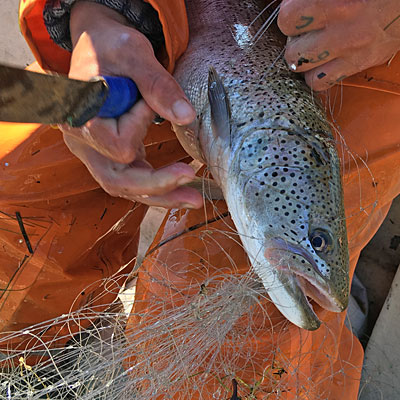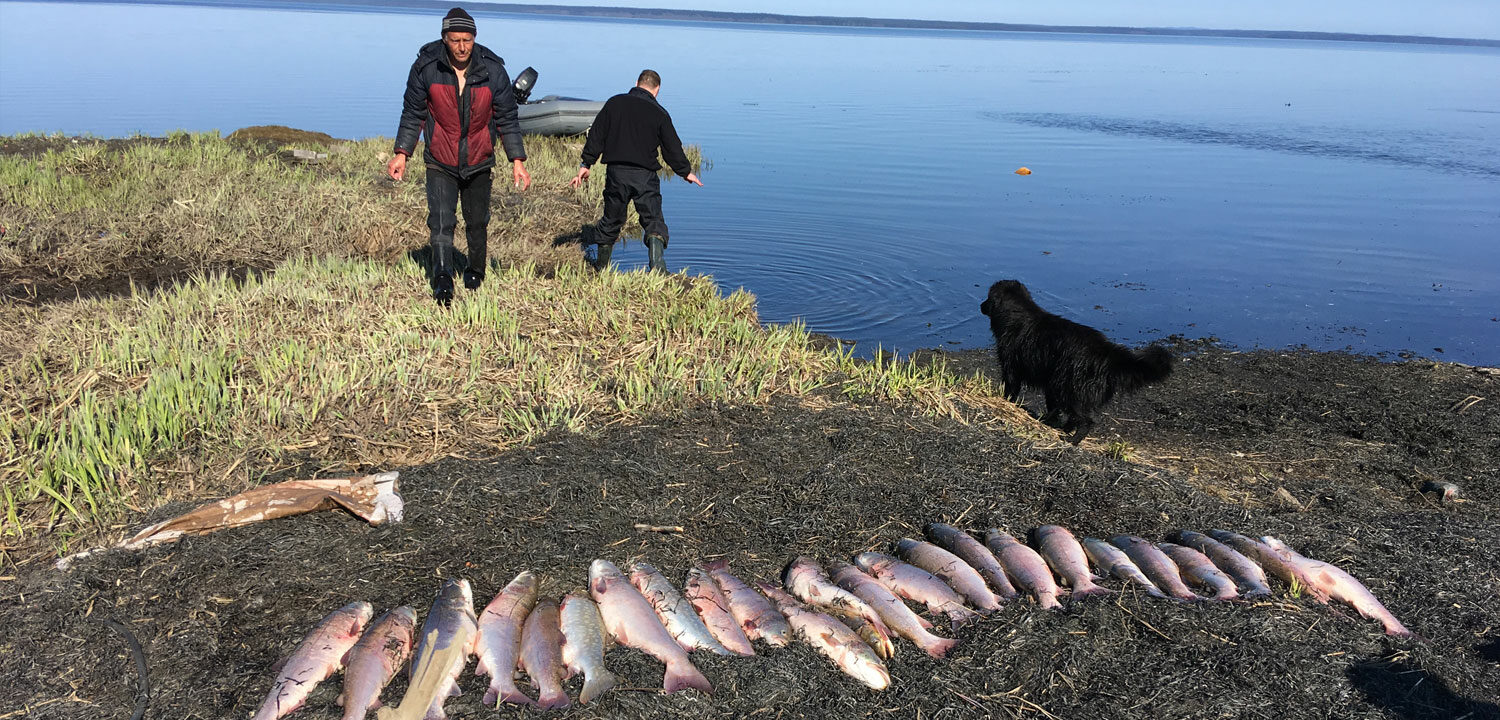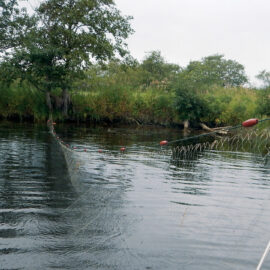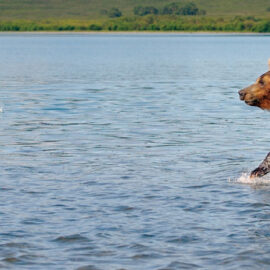Anti-poaching operation on the Nabil River protects important wild salmon habitat that hosts critically endangered Sakhalin taimen.
On Sakhalin Island, border guards, fishermen, oil workers and our partners at Sakhalin Environment Watch banded together two weeks ago to bust a poaching camp that had been illegally fishing for endangered Sakhalin taimen. The raid happened last week in Nabil Bay, on Sakhalin’s northeast coast, at the mouth of the Nabil River. It’s an important salmon stream that hosts pink, chum and the Asian cherry and where our partners are pursuing a protected area.

The three poachers were caught in the act early in the morning, as they were unloading their latest catch on the shore: 22 Sakhalin taimen. A survey earlier by the anti-poaching brigade confirmed poachers were conducting illegal activities. The anti-poaching group also found another six taimen in nets in the river. Three fish were in relatively good condition and were released back to the water.
During the raid, the group also removed the poachers’ nets from the rest of Nabil Bay.
The poachers had been living in a house on the southeastern coast of Nabil Bay in an informal settlement on the site of an old oil exploration well, and they had been catching up to 30 taimen a day. They were part of an organized illegal fishing operation, supplied regularly by other members of the organization with fuel, nets, food and alcohol. At least two of these organizers were identified during the raid. The boat, a spare engine, nets and the remaining fish were seized from the poachers, and the poachers taken to a local police station.
A criminal case is being filed against the poachers. It is illegal under Russian Federation law to catch, acquire, store, transport, or sell especially valuable wild animals listed in the Red Book of Russia, which includes the Sakhalin taimen. Sakhalin taimen are also listed as critically endangered by the International Union for Conservation of Nature. Their numbers have been reduced to remnant populations on Japan’s Hokkaido Island, Sakhalin Island, and mainland Khabarovsk. In May 2017, Sakhalin State University finished a two-year program studying Sakhalin taimen in the Nabil River and Nabil Bay. Researchers concluded that if the existing levels of poaching continue, the Nabil taimen population won’t survive longer than 12 years.
The anti-poaching raid was unique because it combined the Sakhalin border patrol of the Russian Federation, the oil company RN-Sakhalinmorneftegaz, the local fishing company NH Kaigan, and Sakhalin Environment Watch. Oleg Putintsev, a well-known Nogliki businessman, also contributed greatly to the effort.
Wild Salmon Center and Sakhalin partners are also working to establish a federal fisheries protected zone on Nabil Bay, under a new Russian law. In a fisheries protected zones, destructive development and practices, such as mining and logging, are prohibited. The law is another tool that commercial and subsistence fishing communities can deploy to protect their livelihoods.




